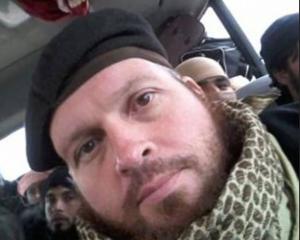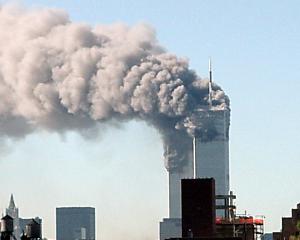The Red Cross has delivered emergency aid to areas around the battered Baba Amro district of the Syrian city of Homs, but was blocked for a third day from entering the former rebel bastion amid reports of bloody reprisals by state forces.
Activists reported shelling and other violence across Syria, sending one of the biggest surges of refugees across the border into Lebanon in a single day since a revolt against President Bashar al-Assad began a year ago.
Concerns mounted for civilians left stranded in Baba Amro in freezing weather with little food, fuel or medicine. Rebels abandoned their positions there on Thursday after facing almost a month of near-constant shelling by Syrian forces intent on crushing the uprising.
Activists said the government was trying to prevent the Red Cross from witnessing "massacres" by Syrian soldiers hunting down and killing remaining rebels.
"In all the years that I have known the ICRC in Damascus, the Syrian government has never let them see torture victims or the underbelly of the government," said Joshua Landis, a Syria expert at Oklahoma University. "I don't know why they would change now."
U.N. Secretary-General Ban Ki-moon said on Friday he had received "grisly reports" that troops were executing and torturing people in Homs after insurgents abandoned their positions.
"It's over for tonight. We will try again tomorrow," said Saleh Dabbakeh, the Damascus-based spokesman for the International Committee of the Red Cross (ICRC), referring to efforts to get into Baba Amro. He declinined to say why Syrian forces had blocked their entry.
The ICRC said workers had instead delivered supplies to areas nearby where many people had taken refuge.
The United Nations' refugee agency said up to 2,000 Syrians had fled the fighting for neighbouring Lebanon.
"We had similar numbers in April 2011, but the flow of new arrivals had stabilised since then," United Nations refugee agency spokeswoman Dana Sleiman said.
Refugees told Reuters of army shelling and gunfire in border towns. One woman said she and her family had fled the village of Jusiyah, near Qusair, about 12 km (7 miles) from the border.
"In the morning the shelling started, so we had to leave towards Lebanon. There were some wounded, but I don't know what happened to them," said Um Ali, 64.
She sat under a tree with her husband, five sons and a pregnant daughter-in-law. They had not brought any belongings.
"We don't know what to do," she said.
A doctor on the Lebanese border said around 1,500 Syrians had crossed into Lebanon.
A Lebanese security source said the Lebanese army had arrested at least 35 armed Syrian rebels who were trying to enter his country from Qusair.
The outside world has proved powerless to halt the killing in Syria, where repression of initially peaceful pro-democracy protests sparked an insurrection by army deserters and others.
The government says it is fighting foreign-backed "terrorists" it blames for killing hundreds of soldiers and police across the country.
Syrian state television showed images of the corpses of anti-Assad fighters killed in clashes in the suburbs of the city of Hama, as well as an array of captured weapons, including arms it said were U.S. and Israeli-made.
One anti-government activist said the Syrian army had raided a girls school in Daraya, near Damascus, beating students for holding an anti-Assad protest and threatening to open fire on similar demonstrations in future.
In a house in the Douma suburb of Damascus, the activist told Reuters by Skype that the Syrian army had killed two defectors and seven other people who had been harbouring them.
Other activists reported government raids in Hama in which one young man was shot dead, and heavy shelling in the town of Rastan, north of Homs, where rebels have been hiding.
"Residents told me that shelling started early this morning shortly after helicopters and spotter planes were seen above the town," said Rami Abdelrahman, head of the Britain-based Syrian Observatory for Human Rights.
Clashes between Syrian troops and Free Syrian Army rebels, many of them army defectors, were reported in Jebel al-Zawiya in Syria's north, and activists said government forces had used tear gas to end an anti-Assad protest of around 1,000 people in the northern city of Aleppo.
Abdelrahamn also reported an attack on a Syrian army weapons depot by rebels near Homs on Saturday, killing and wounding up to 50 Syrian troops. Activists' reports are difficult to verify independently due to Syrian reporting restrictions.
The United Nations says Syrian security forces have killed more than 7,500 civilians since the revolt against the Assad family's four-decade rule began in March last year.
The Syrian government said in December that "armed terrorists" had killed more than 2,000 soldiers and police during the unrest.
BEIRUT PROTESTS
Lebanon deployed more troops to its northern border in response to the violence in Syrian towns nearby, a Reuters witness said, part of a conflict that risks dragging in regional powers with rival sectarian interests.
In the Lebanese capital, Beirut, hundreds of soldiers and scores of military trucks and jeeps blocked off the city centre during protests for and against Assad, whose ruling clan are Alawites, an offshoot of Shi'ite Islam.
Lebanon is home to Shi'ites, Sunnis and Christians, and is the base of the powerful Shi'ite militant group Hezbollah.
Sunni Arab states Qatar and Saudi Arabia have been among the loudest calling for Assad's downfall, and have even suggested arming his opponents.
"We sacrifice our blood and souls for you Bashar," chanted a pro-Assad crowd of about 500 people. Some stepped on photos of Saudi Arabia's King Abdullah and threw shoes at a poster of him.
A similar sized anti-Assad crowd sang: "We sacrifice our blood and souls for you, Homs."
China, which along with Russia has twice vetoed U.N. Security Council resolutions condemning Damascus, urged government and rebels to end the violence and start talks, but reiterated its opposition to foreign military intervention.
"We oppose anyone interfering in Syria's internal affairs under the pretext of 'humanitarian' issues," said a foreign ministry statement carried by Xinhua news agency.
Russian Foreign Minister Sergei Lavrov will join Arab counterparts at a meeting in Cairo this month to discuss the Syrian crisis, the Arab League said on Sunday, a move that could indicate Moscow is shifting its stance on the issue.











